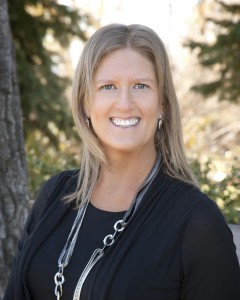Meeting Mentor Magazine
ConferenceDirect Solutions: Deborah Borak
Groups Need to Take More Flexible
Approaches in Seller’s Market
 The continuing strength of the seller’s market makes Deborah Borak’s work for her customers that much more valued. “Hotels are scrutinizing each piece of business much more than they used to,” said the director of global accounts at ConferenceDirect. “It’s extremely difficult to keep rates, let alone the meeting, the same.” With CDS, CMM and SMMC certifications, she has walked in her clients’ shoes as a meeting planner. That’s why she strongly advocates a number of flexible approaches at times like these:
The continuing strength of the seller’s market makes Deborah Borak’s work for her customers that much more valued. “Hotels are scrutinizing each piece of business much more than they used to,” said the director of global accounts at ConferenceDirect. “It’s extremely difficult to keep rates, let alone the meeting, the same.” With CDS, CMM and SMMC certifications, she has walked in her clients’ shoes as a meeting planner. That’s why she strongly advocates a number of flexible approaches at times like these:
• Rooms-to-space ratios. She works with fraternal groups that sleep 600 people in 150 “quad” rooms, but still require a general session room for 600, a meal room for 600, and 10 to 12 additional breakout rooms. In today’s market, a lot of hotels are “turning down flat these skewed ratios,” even in destinations that are not a group’s first choice.
“I explain to them that a meeting that takes up all the meeting space for a quarter of the sleeping rooms is not a good business decision for a 600-room hotel,” she said. Then she asks: Can you reuse your general session space for meals or change setups so that they are not space- or labor-intensive? Can you plan six breakouts for 100 each, rather than 12 for 50 attendees each? “Groups have to look at their agenda and tweak their meeting programs going forward,” she said. “Sometimes that means changing their by-laws.”
Example: Borak works with Synergos, an association management company whose biggest client plans a large annual meeting for fraternities, sororities and their advisors. Together, they created a special pre-conference workshop focused on today’s meeting planning trends — everything from rising room rates to changing requirements, from educational content to food and beverage and mobile apps — and invited fraternal meeting planners to attend. “We’ve done this with a hotel partner for three years now,” she noted. This year, 23 attendees heard from a revenue manager from one hotel chain. “That was really impactful,” she noted. “Then, they tell people in other groups, so the news filters out.”
Timing the booking. Already in the first two months of 2015, corporate clients were scrambling to book meetings three weeks out in places they chose before determining availability. “I explained why they need to have the location before they tell people, or they won’t get exactly what they want,” she said. Even some associations that should have booked a future meeting during last year’s fourth quarter waited to see if rates would continue to rise. They have. “People are now living it and not just reading about it,” she added. “That’s why I try to educate them and provide a sense of urgency.”
Even then, hotels won’t consider a 2020 meeting that doesn’t take up the entire hotel. “They’ll say, ‘Our booking window is 18 months out, so we’ll relook at this then,’ when they may have another meeting to marry with our business. Clients don’t understand. ‘Why don’t they want us?’”
Room rental. With groups competing for dates, hotels hold the negotiating strings. One result: Meeting room rental is being charged, even with F&B minimums. “We have to negotiate them both down,” Borak said, which is why she maintains copious history for all her groups. “It helps tremendously if you can show what they’ve done in the past.”
The outcome is even better if a group can be fed in the same room as the meeting. “That’s the biggest change I’ve seen so far this year,” she cited, “and it’s all about trying to maximize the hotel’s space.” Not paying for an additional room really helps cut down on costs. “It let’s us say to the hotel, ‘If you’re already meeting and feeding the group with an F&B minimum, why charge rental, too?’”
Focus. In this buying environment, blanketing a 100-person meeting to many hotels in many cities is not the best way to go. “Less is more,” Borak advocated. It takes time and education to help clients be more concise in what they want, since some groups have no idea where they want to hold their convention. “If we send an RFP to two or three hotels, and they respond with no availability, we can move on.”
Partners. National sales organizations and partner relationships go far to “help me help clients,” Borak cited. The volume and buying power ConferenceDirect brings to the table gives her considerable clout on her clients’ behalf. ConferenceDirect’s annual partner meeting has become an important source for destinations her clients may not have considered before. “We’re being tasked to know even more than we do,” she added. “I take that as a good challenge!” — Maxine Golding
Design by: Loewy Design